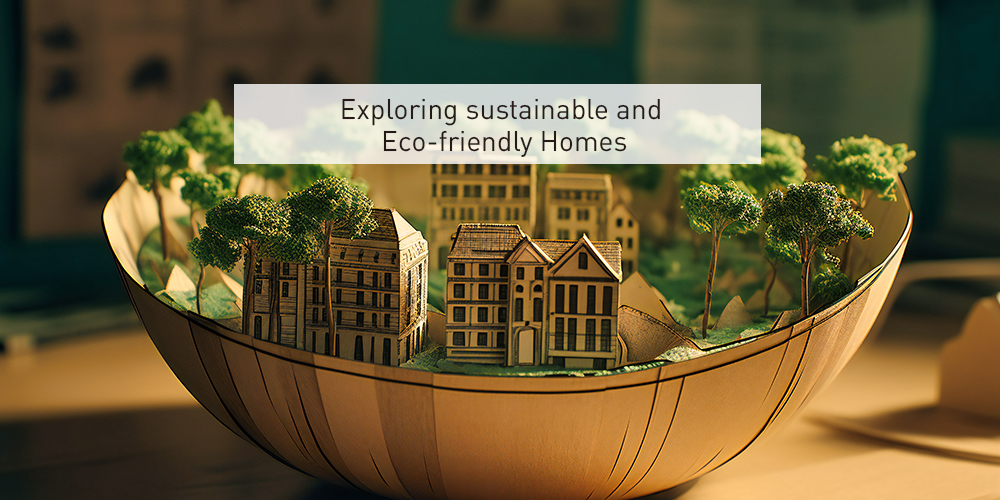Exploring Sustainable and Eco-friendly Homes
As the world struggles with environmental degradation and depleting natural resources, it has become the need of the hour to adopt sustainable and eco-friendly practices in the real estate construction industry too. The real estate industry is expanding at the fastest pace in India and construction of sustainable and eco-friendly homes is the need of the hour. Sustainable real estate refers to the development, construction, and operations of projects that have minimal carbon footprint, maximum resource efficiency, and the safety and well-being of the occupants. The way to do this is to reduce greenhouse gas emissions, improve energy efficiency, and use renewable energy resources. Adopting these practices will help reduce the carbon footprint and conserve the environment.
Green and sustainable homes are on the rise in India and the following practices are being adopted to preserve natural resources.
1. Construction practices
Traditional construction materials like concrete and steel have a high carbon footprint due to their manufacturing processes and use of fossil fuels. The use of sustainable materials like recycled and reclaimed materials are incorporated into the building designs adding unique aesthetic value and reducing the ecological impact. Sustainable construction practices focus on minimizing waste generation and maximizing resource efficiency. The use of eco-friendly bricks, for instance, does not use non-renewable resources like natural gas and coal. Their manufacturing requires less energy and they are safer to use. Stone blocks, concrete blocks, limestone blocks, and eco-friendly cement are materials that are being explored by architects and designers who want to make buildings functional and sustainable.
2. Green certification and programs for sustainable homes
The Indian Green Building Council (IGBC) Green Homes is the first rating program in India developed exclusively for rating sustainability of the residential projects. The objective of IGBC Green Homes is to facilitate the effective use of site resources, water conservation, energy efficiency, waste management, optimum material utilization, and design for healthy homes. The rating system evaluates the construction and maintenance practices followed based on prescribed norms for sustainability and quality of life for the occupants. The certification if achieved has a positive impact on environmental sustainability as important measures like water and energy conservation, enhanced air quality, excellent day lighting, and conservation of natural resources are achieved.
3. Renewable energy
Renewable energy resources like solar, wind, biomass and hydropower are potential ways in which the use and consumption of energy will be revolutionized. So far, there has been success in harnessing solar energy due to abundant and easily available sunlight. Solar photovoltaic systems are commonly seen integrated into open spaces with exposure to sunlight. The energy thus used reduces dependence on traditional power resources decreasing carbon footprint at the same time. Indian government’s policies such as Solar Rooftop Photovoltaic Systems and Net Metering Regulations have facilitated the installation of solar PV systems in residential, commercial, and industrial buildings. As the commitment to sustainability gains importance energy efficient buildings and green infrastructure are set to revolutionize the Indian real estate sector.
4. Water conservation methods
Rainwater harvesting is one of the principal methods of water conservation visible in the real estate sector. By reducing the dependence on municipal water supply, rainwater harvesting also prevents urban flooding and erosion while providing a decentralized source of water for landscaping, sanitation, and non-potable uses. Greywater recycling systems enable the treatment and reuse of household wastewater from sinks, showers, and washing machines for non-potable uses. Leak detection and water management systems are used for mitigating water losses and inefficiencies within many residential and commercial projects. Educating residents, tenants, and stakeholders in residential complexes and housing societies is an effective way of promoting water conservation to preserve water resources in the long run.
These are some of the trends that are slowly gaining traction in the residential real estate sector. As more complexes adopt these practices the goal of sustainable and eco-friendly housing can be realised.

